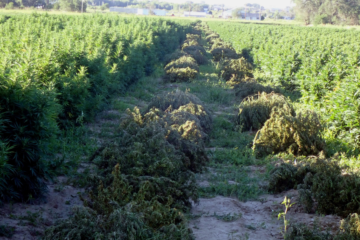Ontario has introduced new legislation that would prohibit the cultivation of cannabis in homes where child care services are offered. The bill would also allow the province to enter into agreements with First Nations communities on the regulation of cannabis on reserves.
Cannabis cultivation ban in home-based child care
The proposed legislation, called the Enhancing Access to Justice Act, 2023, would amend the Child Care and Early Years Act, 2014 to ban the growing of up to four cannabis plants in homes that provide child care services. The province says this is a measure to protect the health and safety of children and child care providers.
Ontario’s Attorney General Doug Downey said the current situation is “deeply unsettling and inappropriate,” noting that BC has a similar restriction already in place. He said the federal government’s decision to legalize cannabis in 2018 did not consider the impact on home-based child care facilities.
“As it stands, cannabis can be grown in home-based child care facilities. We find this deeply unsettling and inappropriate, and quite frankly I never imagined we would need to legislate this,” Downey said.
The ban would apply to both licensed and unlicensed home-based child care providers. The province says it will consult with stakeholders on the implementation of the ban and the enforcement options.
Agreements with First Nations on cannabis regulation
The bill would also amend the Cannabis Control Act, 2017 to enable the province to enter into agreements with First Nations communities on the regulation of cannabis on reserves. The province says this would respect the autonomy and jurisdiction of First Nations and support their economic development.

The agreements could cover various aspects of cannabis regulation, such as licensing, inspection, enforcement, taxation, and revenue sharing. The province says it will work with First Nations on a case-by-case basis to develop agreements that meet their specific needs and interests.
Ontario’s Minister of Indigenous Affairs Greg Rickford said the province is committed to building respectful and collaborative relationships with First Nations on cannabis regulation.
“We recognize that First Nations have an inherent right to self-government and that they may have their own laws and regulations regarding cannabis,” Rickford said. “We want to work with them to ensure that their laws and regulations are consistent with the objectives of the Cannabis Control Act, 2017, which are to protect public health and safety, prevent youth access, and combat the illegal market.”
Increase in cannabis store cap and crackdown on illegal online sales
The bill also includes other measures related to cannabis regulation in the province, such as:
- Increasing the number of cannabis stores that a retailer can operate from 75 to 150, starting in early 2024. The province says this will help combat the illicit market and create more jobs and opportunities in the legal cannabis sector.
- Exploring different enforcement options against illegal online cannabis sales, such as issuing administrative monetary penalties, seizing assets, and blocking access to websites. The province says this will protect consumers from unregulated and potentially unsafe products and support the viability of the legal cannabis market.
The bill is part of the province’s broader omnibus legislation that aims to improve access to justice and modernize the justice system in Ontario. The bill also contains provisions related to family law, civil litigation, class actions, and legal aid.
The bill was introduced in the legislature on November 30, 2023 and is expected to undergo debate and committee hearings in the coming weeks.



